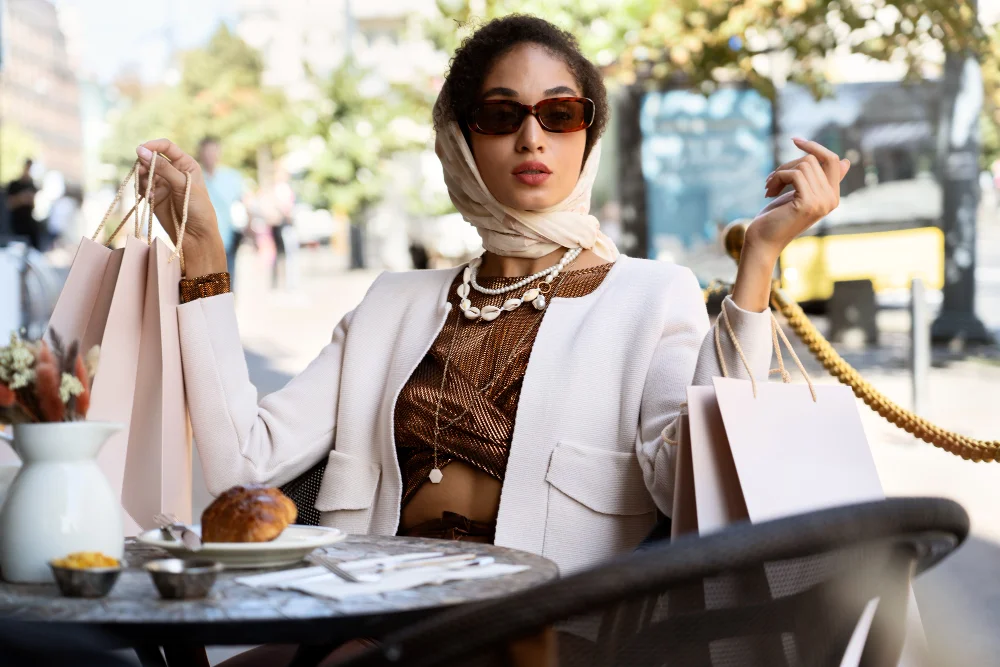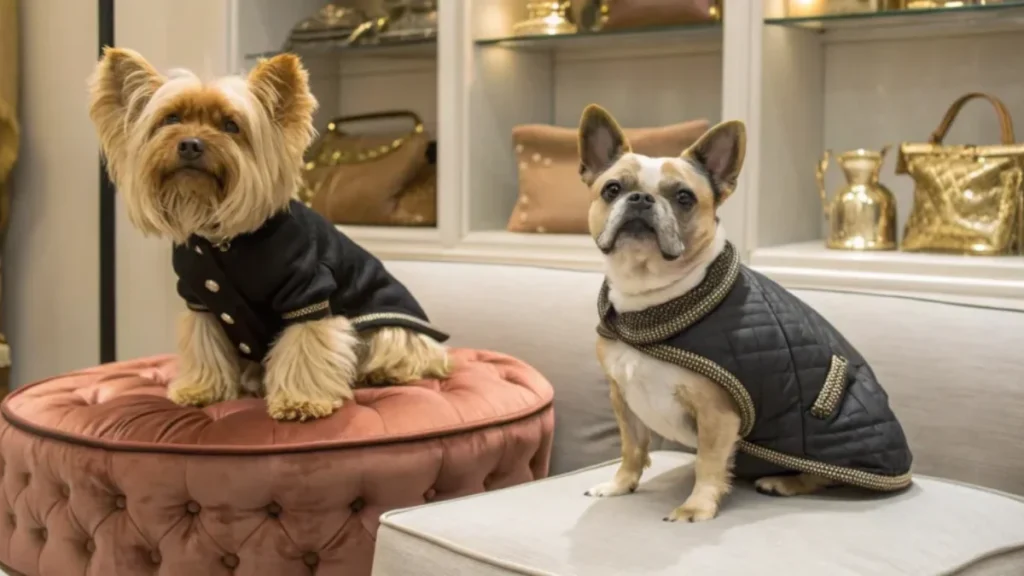Luxury fashion brands are more than just logos stitched onto fabric; they are statements of personal identity, social status, and refined taste. In 2025, these brands symbolize a lifestyle of elegance and distinction. From the timeless Chanel tweed to the avant-garde aesthetics of Balenciaga, luxury fashion brands continue to define global style with precision and purpose.
Unlike the past, today’s consumers crave more than prestige. They are looking for a deeper meaning behind what they wear. They expect quality, authenticity, and ethical values embedded in every stitch. As a result, luxury fashion brands that prioritize sustainability, craftsmanship, and cultural relevance are leading the charge in a shifting fashion landscape.
Thanks to their ability to blend tradition with innovation, luxury fashion brands are not only surviving, they’re thriving. They reinvent themselves through bold collaborations, digital transformation, and conscious production while still honouring their rich heritage. This balance is what keeps them timeless, desirable, and culturally influential.
Why Luxury Fashion Brands Still Reign Supreme
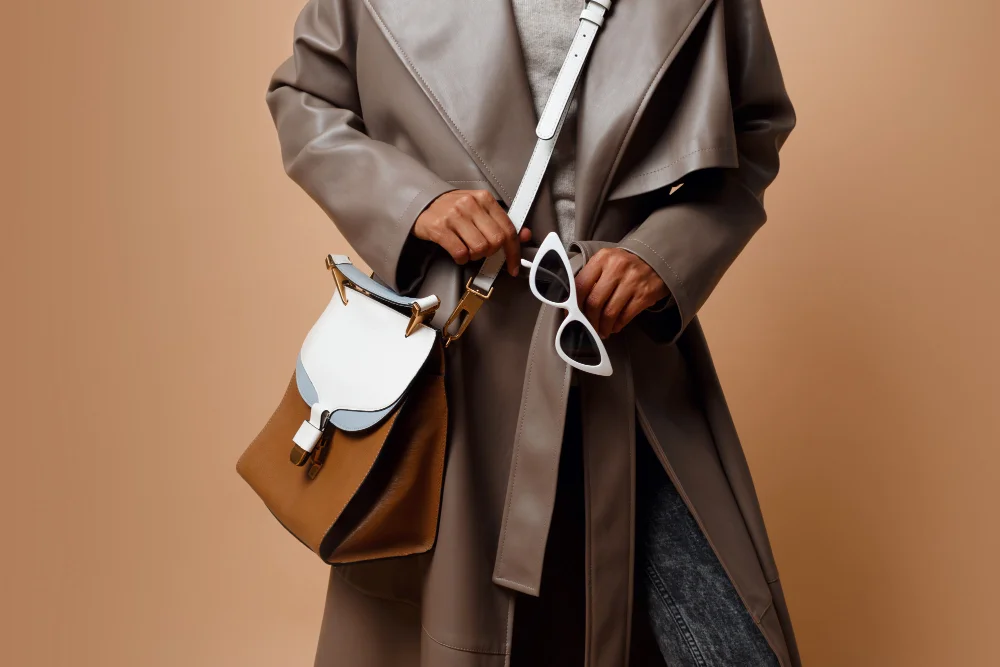
Luxury fashion brands remain at the top because they master the art of balance, honouring tradition while embracing change. Their legacy gives them credibility, but it’s their innovation that keeps them relevant. With decades, sometimes centuries, of history, these brands have built trust and prestige that can’t be replicated overnight.
However, luxury today isn’t just about status or wealth. It’s about individuality, purpose, and cultural significance. Modern consumers want brands that reflect their values. Whether it’s sustainable practices, bold creativity, or social impact, luxury fashion brands now stand for much more than glamour; they stand for meaning.
How Luxury Fashion Brands Stay Relevant
Even in the ever-changing world of digital fashion, luxury fashion brands manage to stay ahead by blending tradition with transformation. They understand the importance of evolving while maintaining their core identity. From adopting eco-conscious practices to launching bold collaborations and investing in digital innovation, these brands continue to lead with relevance. By doing so, they not only capture the attention of younger generations but also remain timeless in the eyes of loyal consumers.
Key strengths of luxury fashion brands include:
- Timeless storytelling rooted in legacy
- Premium materials and expert craftsmanship
- Consistent reinvention of fashion identity
- Global cultural relevance
- Limited-edition exclusivity
Sustainable Fashion: The Future of Luxury
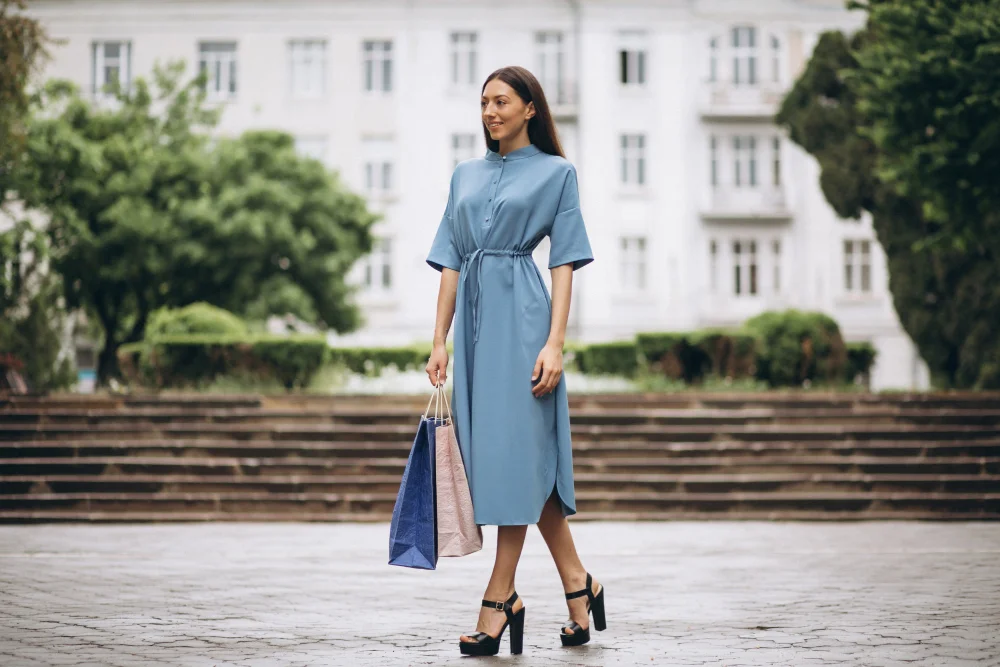
Sustainability has become a core pillar of modern luxury. It’s no longer just a marketing term; it’s a serious commitment to ethical practices and environmental responsibility. Luxury fashion brands are now embracing eco-friendly materials, responsible sourcing, and transparent production methods. Designers like Stella McCartney have pioneered this shift with vegan alternatives, while major houses like Gucci are making strides with carbon-neutral packaging and sustainable supply chains.
This transformation is also changing consumer expectations. Today’s buyers want to align their fashion choices with their values. Luxury brands that invest in sustainability not only gain consumer trust but also future-proof their relevance in a competitive market. By placing the planet at the centre of design, luxury fashion is redefining what it means to be truly elite.
Luxury vs Fast Fashion: What Sets Them Apart
Luxury fashion is built on intention, artistry, and time. Every piece is carefully crafted using premium materials, expert techniques, and thoughtful design. It’s meant to last for years, often gaining value and sentiment with age. Luxury is about investment, both in style and substance.
In contrast, fast fashion is focused on speed and volume. It prioritizes trends over quality, resulting in clothes that are inexpensive but short-lived. While fast fashion may be accessible, it often lacks the durability, emotional connection, and craftsmanship that luxury fashion brands consistently deliver.
Top Collaborations That Reshaped Fashion

Luxury fashion brands are rewriting the rules by teaming up with streetwear, music icons, and sportswear giants. These unexpected partnerships are drawing in younger audiences while keeping the exclusivity that defines luxury.
Louis Vuitton x Pharrell Williams
This collaboration brought a fresh, artistic vision to Louis Vuitton’s menswear line. Pharrell’s influence merged music and fashion seamlessly. The result? Bold, culturally rich collections with global appeal.
Gucci x Adidas
Gucci and Adidas joined forces to blend heritage and street style. With retro designs and luxury fabrics, the collab created a stylish bridge between athletic and high fashion. It appealed to both sneakerheads and fashion lovers.
Balenciaga x Crocs
A surprising but successful pairing, this collab turned ordinary clogs into runway-ready icons. Balenciaga’s edgy touch gave Crocs a fashion-forward twist. It sparked debates but sold out fast.
Dior x Travis Scott
Dior’s partnership with rapper Travis Scott infused street energy into classic luxury. Earth tones, bold graphics, and youthful silhouettes stood out. The collection was a significant hit among Gen Z and Millennials.
Fendi x Skims
Combining Fendi’s legacy with Skims’ body-positive ethos, this collaboration was both stylish and inclusive. Kim Kardashian’s brand added comfort and stretch to high fashion. It sold out globally in minutes.
Rising Luxury Labels to Watch
The world of luxury fashion is no longer dominated only by century-old houses. A new generation of designers is making waves with fresh perspectives, modern aesthetics, and firm commitments to sustainability. These rising labels are redefining what luxury means in today’s world, focusing more on innovation, ethics, and individuality.
Many of these brands are gaining attention for their unique storytelling and minimalist design. They appeal to younger consumers who seek authenticity and values behind the clothes they wear. With limited-edition drops, ethical production methods, and modern tailoring, these newcomers are setting new standards in luxury fashion.
New-Age Brands Making a Mark
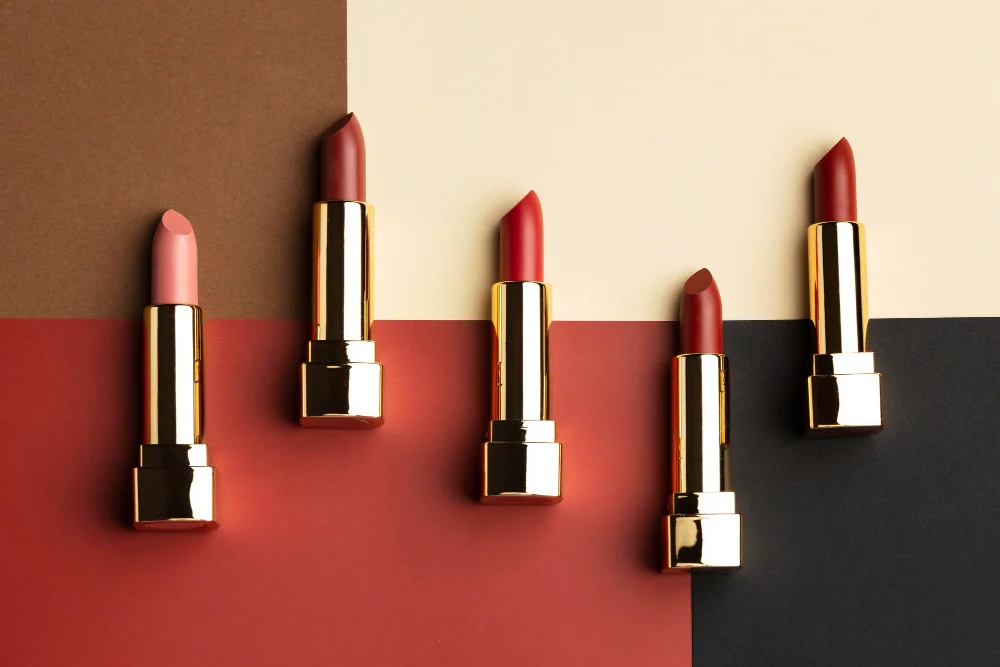
Emerging luxury brands are rewriting the rules with innovation, ethics, and individuality. These designers are focusing on clean aesthetics, sustainability, and fresh storytelling, offering a new definition of what luxury fashion means today.
These emerging labels are changing the meaning of luxury:
- Coperni – Blending tech and youth fashion
- Peter Do – Reinventing tailoring for modern minimalism.
- The Row – Luxury simplicity by Mary-Kate & Ashley Olsen
- Nanushka – Conscious production, relaxed luxury
- Marine Serre – Futuristic eco-fusion
Digital Fashion: How Luxury Thrives Online
In today’s world, a strong digital presence is just as crucial as a flagship store. Luxury fashion brands are embracing technology to connect with a new generation of digital-native consumers. Through virtual try-ons, interactive campaigns, and immersive online experiences, they are making luxury more accessible without losing exclusivity.
From metaverse fashion shows to limited-edition digital collectables, these brands are exploring new frontiers. Augmented reality apps and AI stylists offer personalized shopping like never before. By blending tradition with cutting-edge tech, luxury fashion continues to evolve while staying ahead of digital trends.
What Today’s Consumers Want
Today’s luxury consumers are more mindful than ever. They’re no longer impressed by logos alone; they care about the story behind the brand. Shoppers are looking for authenticity, quality, and deeper meaning in what they wear.
More buyers now expect transparency, ethical production, and sustainability. They want brands that reflect their values, from eco-friendly materials to inclusive campaigns. This shift is forcing luxury fashion brands to evolve in ways that go beyond surface-level appeal.
Additionally, personalization is becoming a key demand. Consumers want pieces that feel unique to them, limited editions, custom tailoring, or emotionally resonant designs. In 2025, luxury is defined not just by price but by purpose, identity, and emotional connection.
Modern Luxury Preferences Are Shifting Toward
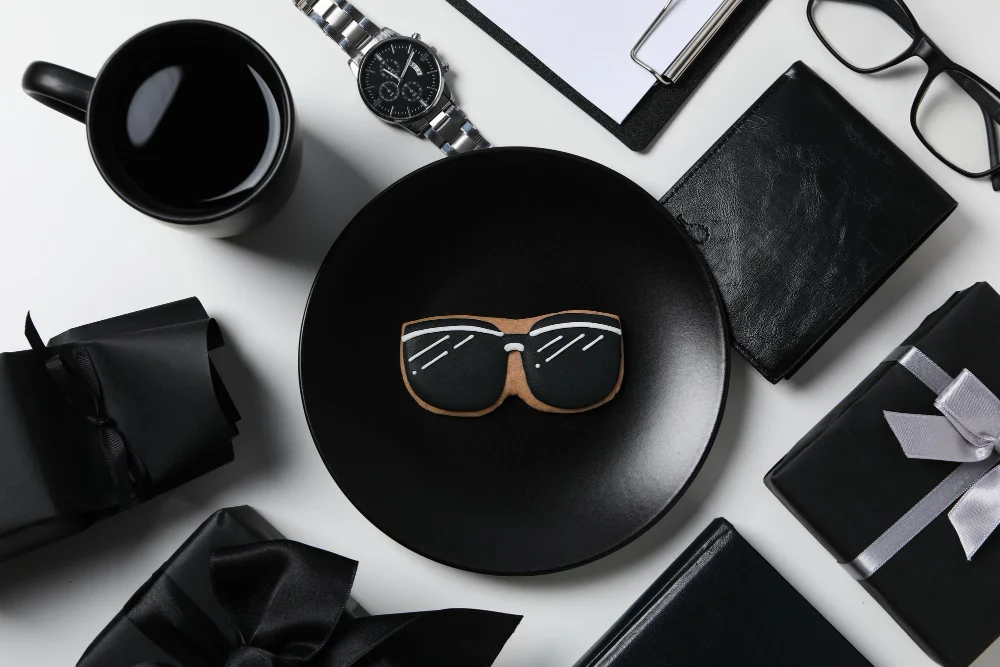
As luxury buyers evolve, their preferences are becoming more value-driven. Instead of chasing trends, they are seeking thoughtful, high-quality pieces that align with their lifestyle and beliefs. Modern luxury is now about integrity, design, and personal relevance.
Key Values Shaping Modern Luxury Fashion
- Clean and timeless design
- Eco-conscious production
- Ethical supply chains
- Personal expression
- Long-lasting quality
Challenges Luxury Brands Must Overcome
Even as luxury fashion brands evolve, they face growing challenges in a rapidly shifting global market. Counterfeit products continue to threaten brand authenticity and consumer trust. At the same time, rising inflation affects both production costs and consumer spending habits, forcing brands to justify their high price points more than ever.
Another major challenge lies in balancing exclusivity with inclusivity. Today’s audiences expect diversity, representation, and social awareness from the brands they support. Luxury labels must find ways to stay aspirational without appearing out of touch. Adapting to these cultural shifts while protecting their legacy is essential for long-term success.
Ultimately, luxury fashion brands are becoming leaders not only in design but in global conversation. They influence art, technology, and culture on a deeper level. As long as they continue to adapt with integrity, they will remain icons for generations to come.
Conclusion:
Luxury fashion brands continue to stand as symbols of elegance, craftsmanship, and cultural influence. Despite changing trends, they adapt while preserving their heritage, offering not just clothing or accessories but a complete lifestyle experience. With attention to detail, innovation, and exclusivity, these brands create timeless value that goes beyond seasonal appeal.
In a world driven by fast fashion and mass production, luxury brands remind us of the power of quality over quantity. From haute couture runways to minimalist luxury, they influence global tastes and set the bar for excellence. Whether it’s a statement piece or a subtle logo, the impact of luxury fashion brands remains unmatched across generations.

